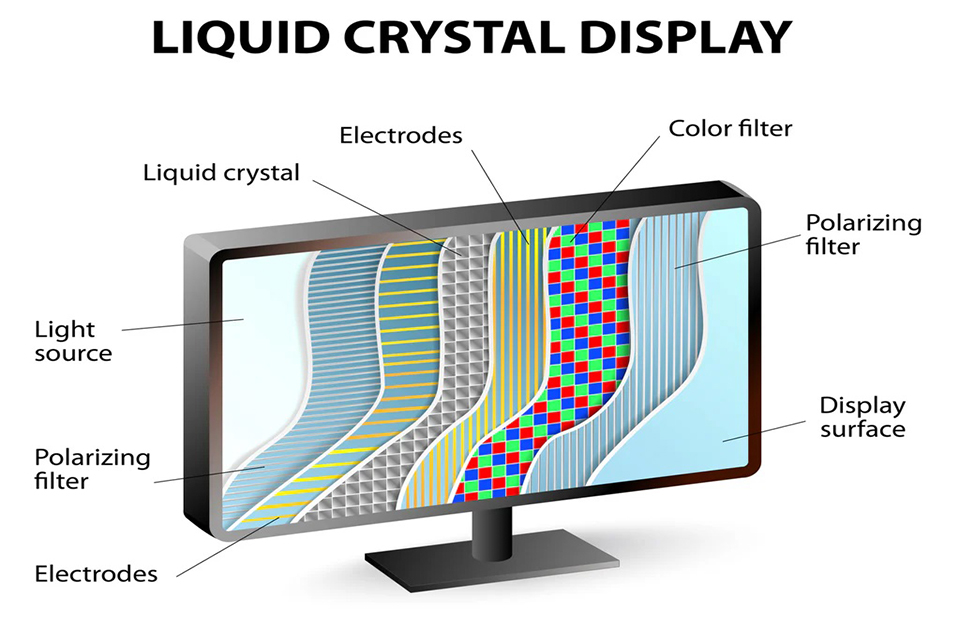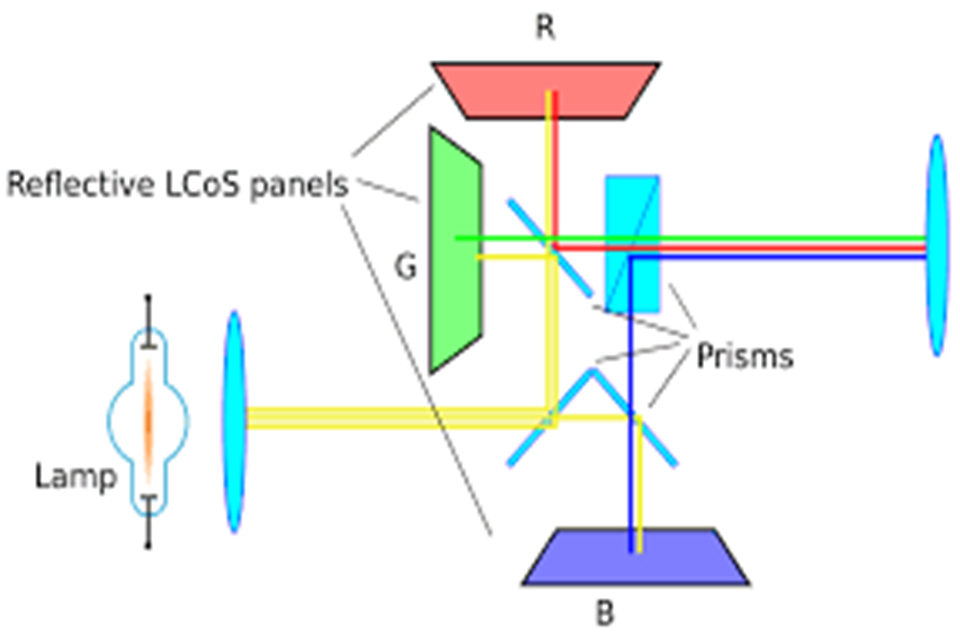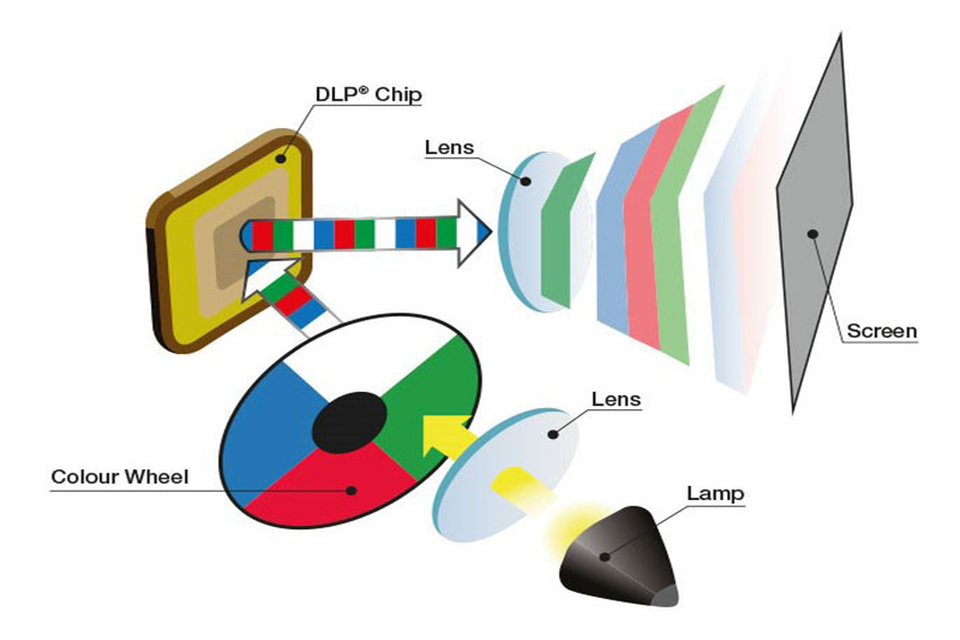In the realm of projector technology, the choice between LCD and LCoS displays can significantly impact your viewing experience. Whether you're setting up a home theater or looking to enhance your presentation capabilities, understanding these technologies is crucial. This article will delve into the key differences, advantages, and applications of LCD and LCoS projectors, helping you make an informed decision.
What is LCD Technology?
What is LCoS Technology?
How Does DLP Compare to LCD and LCoS?
What Are the Advantages of LCD Projectors?
What Are the Advantages of LCoS Projectors?
How Do Black Levels Differ in LCD and LCoS?
Which Technology Is Better for Home Theater?
What Should You Consider When Choosing a Projector?
How Do LCD and LCoS Handle Color Accuracy?
Final Thoughts: LCD vs. LCoS in Projector Imaging
LCD, or Liquid Crystal Display, is a widely used display technology in various devices, including projectors. It works by manipulating light through liquid crystals sandwiched between two layers of glass. The primary advantage of LCD projectors is their ability to deliver bright images with excellent color reproduction, making them popular for home theater and business presentations.
LCD projectors utilize three separate panels—one for red, one for green, and one for blue (RGB)—to create a full-color image. This method allows for vibrant colors and detailed images, which are essential for a compelling viewing experience. However, LCD projectors may struggle with deeper black levels compared to LCoS projectors, impacting contrast in darker scenes.

LCoS, or Liquid Crystal on Silicon, represents a newer display technology that combines the best aspects of LCD and DLP (Digital Light Processing). Unlike traditional LCD projectors, LCoS uses liquid crystals applied directly to a reflective silicon backing. This unique setup allows for higher resolution and better black levels, making LCoS projectors ideal for home theater applications.
The LCoS technology is known for its smooth image quality and exceptional detail, particularly in high-definition formats. It also excels in color accuracy, providing a rich viewing experience. However, LCoS projectors can be more expensive than their LCD counterparts, which may be a consideration for budget-conscious consumers.
DLP projectors leverage a different technology, using a digital micromirror device (DMD) to create images. The key difference lies in how light is manipulated to form the picture. DLP projectors tend to offer excellent brightness and fast response times, making them suitable for various lighting conditions.
When comparing DLP vs. LCD vs. LCoS, it becomes evident that each technology has its strengths. DLP excels in motion clarity and brightness, while LCD is known for color accuracy, and LCoS offers superior black levels and detail. The best choice depends on the specific needs of the user, including the intended use and ambient light conditions.
LCD projectors come with several advantages that make them appealing for various applications. One of the most notable benefits is their ability to produce bright images, even in well-lit environments. This feature is particularly advantageous for business presentations or classrooms where ambient light can’t be controlled.
Furthermore, LCD projectors generally have a lower initial cost compared to LCoS and DLP projectors. They also offer wide viewing angles, ensuring that the image remains consistent, regardless of the viewer's position. Overall, LCD projectors are a solid choice for users seeking a reliable and budget-friendly option.
LCoS projectors bring unique advantages to the table, especially for home theater enthusiasts. One of the standout features of LCoS technology is its impressive black levels, which enhance contrast and depth in dark scenes. This quality makes LCoS ideal for movie watching, where shadow detail is crucial.
Another significant advantage is color accuracy. LCoS projectors can reproduce a wider color gamut, resulting in vibrant and lifelike images. While they may come at a higher price point, the superior image quality often justifies the investment for serious home theater setups.

Black levels are a critical factor in image quality, influencing the overall contrast and depth of the projected image. LCD projectors typically struggle with achieving true black levels due to their design. Light leakage from the panels can result in a grayish appearance in dark scenes, affecting the viewing experience.
In contrast, LCoS projectors excel in this area. The reflective nature of LCoS technology allows for more precise control of light, resulting in deeper blacks and improved contrast ratios. This difference is particularly noticeable in cinematic content, where the ability to display dark scenes accurately can enhance immersion.
When it comes to home theater, the choice between LCD and LCoS largely depends on individual preferences and viewing habits. If you prioritize brightness and affordability, an LCD projector may serve you well. However, if you seek the best possible image quality, especially in dark settings, LCoS projectors are hard to beat.
Consideration of room lighting, viewing distance, and content type is essential. For a dedicated home theater room with controlled lighting, LCoS offers a superior experience with its rich colors and deep blacks. In contrast, for mixed-use spaces, an LCD projector may provide the versatility needed for various viewing situations.

Choosing the right projector involves several key considerations. Start by assessing the primary use—are you watching movies, gaming, or giving presentations? Understanding your primary needs will help narrow down the options between LCD, LCoS, and DLP technologies.
Next, evaluate the environment where the projector will be used. Factors such as room size, ambient light, and screen distance play a crucial role in determining which technology will perform best. Additionally, consider the budget, as prices can vary significantly between different types of projectors.
Color accuracy is vital for a realistic viewing experience, and both LCD and LCoS projectors have their strengths. LCD projectors are known for their vibrant colors, thanks to the RGB panels that create a full-spectrum image. This technology is particularly effective for displaying colorful graphics and presentations.
On the other hand, LCoS projectors excel in producing accurate and rich colors, especially in darker scenes. Their ability to handle color depth and accuracy makes them a preferred choice for filmmakers and home theater enthusiasts. Ultimately, both technologies have unique capabilities, and the best choice will depend on your specific viewing needs.
In conclusion, understanding the differences between LCD and LCoS projectors is essential for making an informed decision. Each technology offers distinct advantages, catering to various needs and preferences. Whether you prioritize brightness, color accuracy, or black levels, there’s a projector that fits your requirements.
When it comes to choosing between LCD and LCoS, consider factors such as your primary use, budget, and viewing environment. By weighing these elements, you can find the perfect projector technology for your home theater or professional use.
LCD Technology: Bright, affordable, and suitable for various environments; may struggle with black levels.
LCoS Technology: Superior black levels and color accuracy, ideal for dedicated home theaters.
DLP Comparison: Each technology has strengths—DLP offers brightness; LCD excels in color; LCoS shines in detail.
Choosing a Projector: Assess primary use, environment, and budget to find the best fit.
Color Accuracy: Both LCD and LCoS have unique advantages; choose based on viewing preferences.
By understanding the nuances of LCD and LCoS technologies, you can make a more informed choice that enhances your viewing experience, whether for entertainment or professional presentations.
Contact: Ashley Wu
Phone: +86 17773983073
E-mail: [email protected]
Add: 708 Room A Buiding Huafeng International Robot Industrial Park Xixiang Bao'an